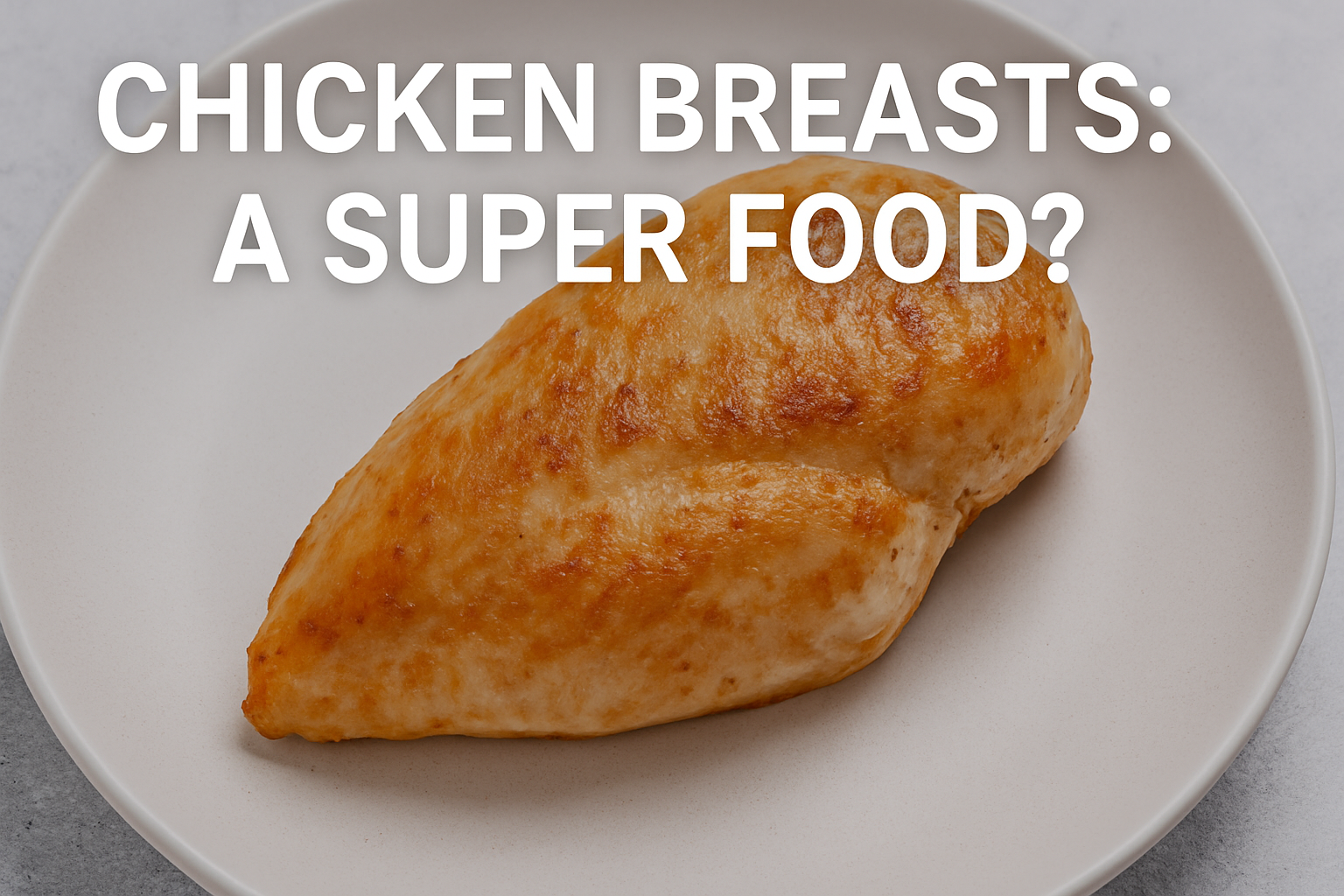In the world of fitness and nutrition, few foods are as revered as the chicken breast. Praised for its lean protein content, versatility, and impressive health benefits, chicken breast nutrition has positioned it as a fundamental staple for athletes, health enthusiasts, and anyone pursuing optimal wellness. But is chicken breast truly deserving of the "superfood" label? Let's dissect the evidence with a professional lens.
Understanding Chicken Breast Nutrition
Chicken breasts are exceptionally nutrient-dense, providing high-quality protein with minimal fat — particularly when skinless.
Nutritional highlights of skinless, boneless chicken breast (per 100g cooked):
- Calories: 165
- Protein: 31g
- Fat: 3.6g
- Saturated Fat: 1g
- Carbohydrates: 0g
- Vitamin B6: 30% of the Daily Value (DV)
- Niacin (Vitamin B3): 74% of the DV
- Phosphorus: 20% of the DV
- Selenium: 39% of the DV
The combination of high protein, essential micronutrients, and low fat makes chicken breast an optimal choice for muscle growth, weight management, and cardiovascular health. As shown in a study from the National Library of Medicine, diets rich in lean protein are linked to improved body composition and metabolic function.
Key Benefits of Chicken Breast Nutrition
1. Muscle Growth and Recovery
- Complete Protein: Chicken breast contains all nine essential amino acids, crucial for muscle repair and growth.
- Leucine-rich: High in leucine, an amino acid known to stimulate muscle protein synthesis, making it ideal for post-workout meals.
2. Weight Management
- High Satiety: Protein-rich foods like chicken breast increase feelings of fullness, helping reduce overall caloric intake.
- Thermic Effect of Food (TEF): Protein digestion burns more calories compared to fats and carbs, supporting weight loss efforts.
3. Heart Health
- Low in Saturated Fat: Skinless chicken breast offers heart-friendly nutrition by keeping saturated fat intake low.
- Selenium and B Vitamins: These nutrients aid in antioxidant protection and energy metabolism, further supporting cardiovascular well-being.
Chicken Breast Nutrition vs. Other Proteins
| Food Source | Calories (100g) | Protein | Fat | Carbohydrates |
|---|---|---|---|---|
| Chicken Breast | 165 | 31g | 3.6g | 0g |
| Salmon | 208 | 20g | 13g | 0g |
| Tofu (firm) | 144 | 15g | 8g | 3.9g |
| Lean Beef (90/10) | 242 | 27g | 10g | 0g |
As this table illustrates, chicken breast provides an excellent protein-to-calorie ratio with minimal fat compared to other common protein sources.
How Chicken Breast Fits Into an Active Lifestyle
For individuals dedicated to maintaining an active lifestyle — whether at elite training facilities or fitness centers in Fort Wayne — chicken breast serves as an ideal foundation for meal planning.
Practical examples of incorporating chicken breast into an active lifestyle:
- Grilled chicken breast paired with quinoa and steamed vegetables for post-workout recovery.
- Chicken salad wraps made with Greek yogurt for a high-protein, low-fat lunch.
- Stir-fried chicken breast with colorful veggies for a nutrient-dense dinner.
Tips for Maximum Nutrition:
- Opt for skinless cuts to minimize saturated fat.
- Use herbs and spices instead of heavy sauces.
- Bake, grill, or steam instead of frying to preserve nutrient density.
Debunking Myths About Chicken Breasts
- "Chicken breast is boring."
Not when seasoned creatively with spices, marinades, and diverse cooking techniques! - "You have to eat it plain to be healthy."
Not true. Flavorful preparations using olive oil, lemon, garlic, or ginger can enhance both taste and nutrition. - "Plant-based proteins are always better."
While plant-based diets offer benefits, chicken breast remains a superior source of complete protein, especially vital for muscle-building goals.
Is Chicken Breast Truly a Superfood?
Evaluating the evidence, it's clear that chicken breast nutrition earns its place among the superfoods — particularly for those focused on strength, recovery, weight management, and heart health. Its lean protein content, low saturated fat, and rich micronutrient profile make it an indispensable part of a balanced diet. Whether you're pursuing peak performance or simply striving for better everyday health, incorporating chicken breast into your meals is a strategic and scientifically backed choice.



No Comments.